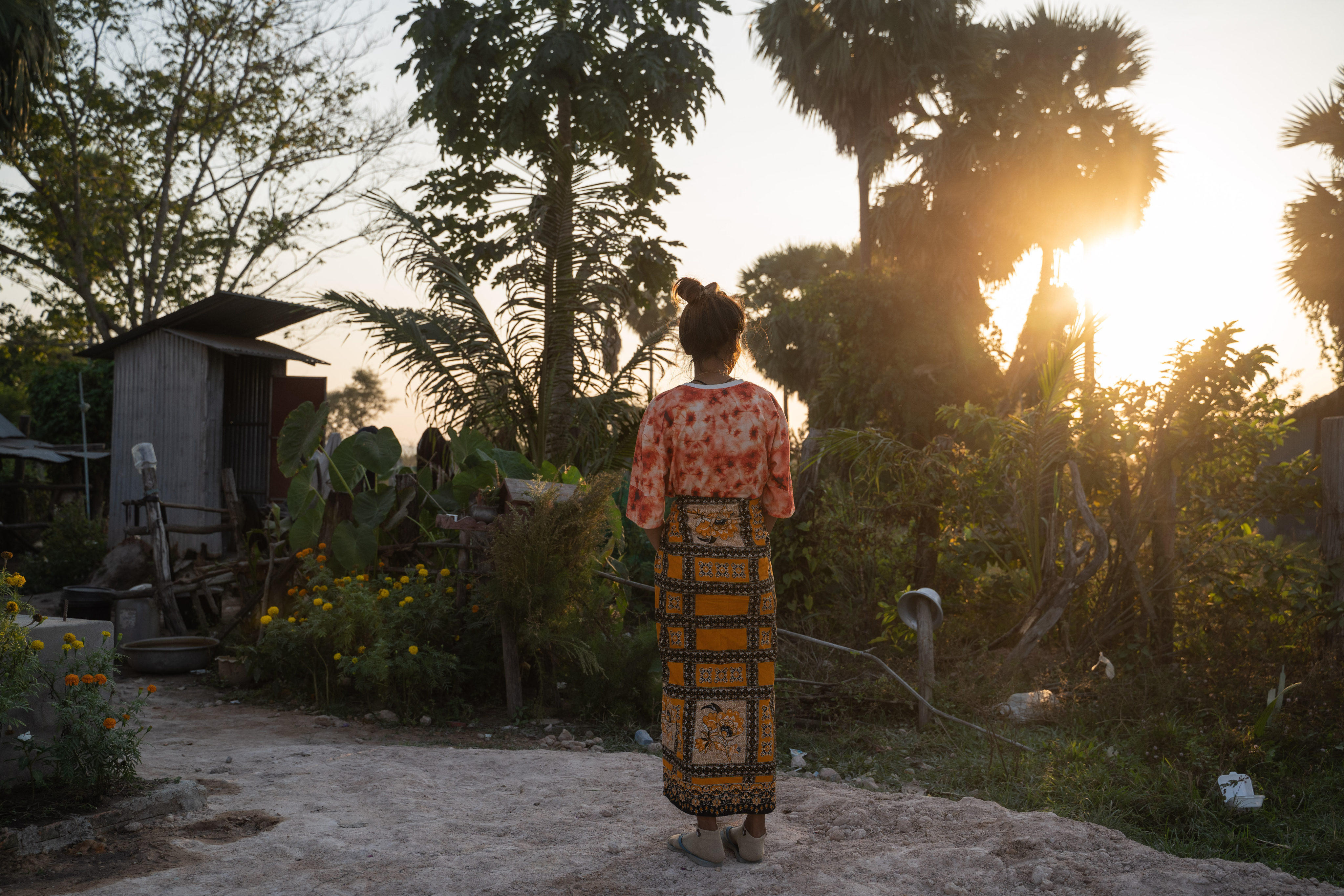
- Dozens of Cambodian women and girls are taken to China each year, where they are forced to marry local men. Only the lucky ones manage to escape
As the January sun sets over verdant rice fields somewhere in Cambodia’s western Pursat province, Kunthea’s two-year-old clamours onto her lap. Sitting on a daybed, clad in a black and orange tie-dye T-shirt, she is quietly savouring a moment with one of her two children.
They are the reasons, after divorcing her first husband in 2020, she picked up a job at a toy factory in central Cambodia, even though that meant leaving her children in her cousin’s care halfway across the country.
So when in October 2020 a fellow factory worker told her she could be making US$1,100 a month doing similar work in China, Kunthea didn’t hesitate. “I have two children to raise so it’s very hard for me,” she says. “When I heard that I would earn a high salary I just wanted to go without thinking.”
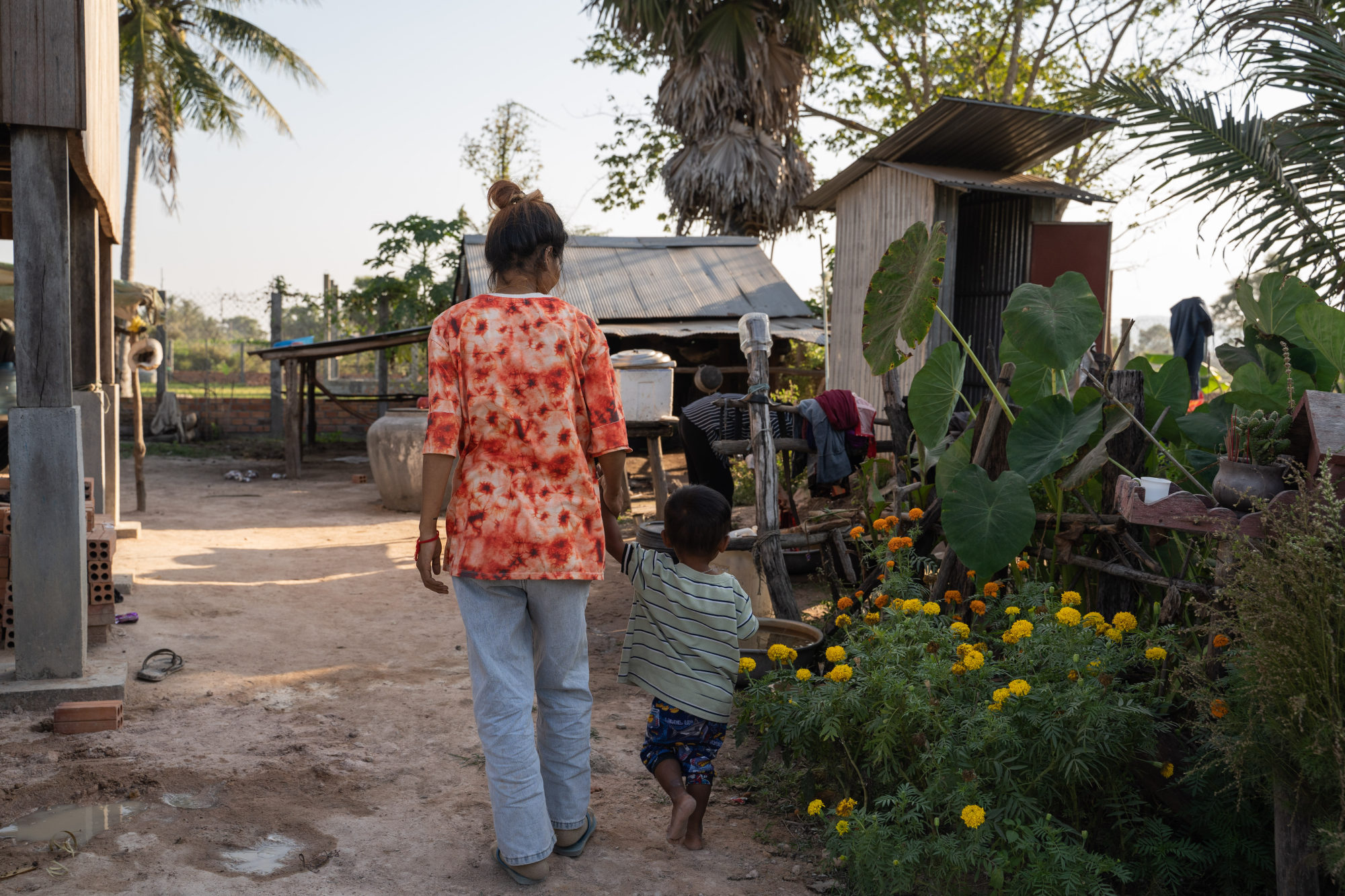
The journey lasted about one week with stopovers, driving through Cambodia and Vietnam towards the Chinese border. Once they had crossed into China, the women were split into groups of four and put into taxis.
Moving plea by abducted victim sold for US$150, now 24, comes on eve of her wedding
Unsuspecting, Kunthea gave her documents to the Chinese handlers, who said they needed them to buy sim cards for the women. Instead, they confiscated her ID card and later returned her phone, minus the sim.
“When I arrived in China, for the first three to four days they locked us in a room,” Kunthea recalls. “After that they opened the room but we still couldn’t go anywhere except local places because we didn’t have an ID card and we were scared the police would catch us.”
Weeks passed. Stuck in a room with no work, the women found ways to keep themselves busy. They talked and goofed around, taking pictures of themselves. In one photo all four, sporting winter jackets and tangerine lipstick, are making faces at the camera. At least one of the group, according to Kunthea, was 16 at the time.
Kunthea’s turn came last August, when she was sold to a balding Chinese man in eastern Jiangxi province. He allegedly paid a “marriage broker” US$2,000 for Kunthea. “I decided to go peacefully because if I argued with them I wouldn’t be safe. They will use violence on me,” she says.
Their mobile phones would be taken away and they would be prohibited from leaving the house unaccompaniedThi Hoang, a researcher with Global Initiative
“They sold one of my friends before me. She lived with the guy and there was violence and they had arguments all the time. And then they sold her to another guy. That’s why I know if I have something like that they will sell me to another guy.”
Kunthea is one of a legion of Cambodian women and girls trafficked to China and forced to marry local men, meeting a demand caused by the country’s one-child policy, which resulted in an acute gender imbalance. In place between 1979 and 2015, the policy exacerbated the knock-on effects of the preference for sons, which led to widespread sex-selective abortions.
A scarcity of marriageable women has seen a surge in the value of dowries. By 2021, Chinese men were reportedly having to pay their Chinese bride and her family up to US$40,000. This is in stark contrast to fees for foreign brides offered by Chinese “agents”, who were charging, at most, US$25,000 in 2020, according to the Cambodian non-profit organisation Centre for Alliance of Labour and Human Rights.
Under international law, human trafficking entails “the recruitment, transportation, transfer, harbouring or receipt of persons” by means of deception, threat or use of force for the purpose of exploitation. This includes for “the prostitution of others or other forms of sexual exploitation, forced labour and services”.
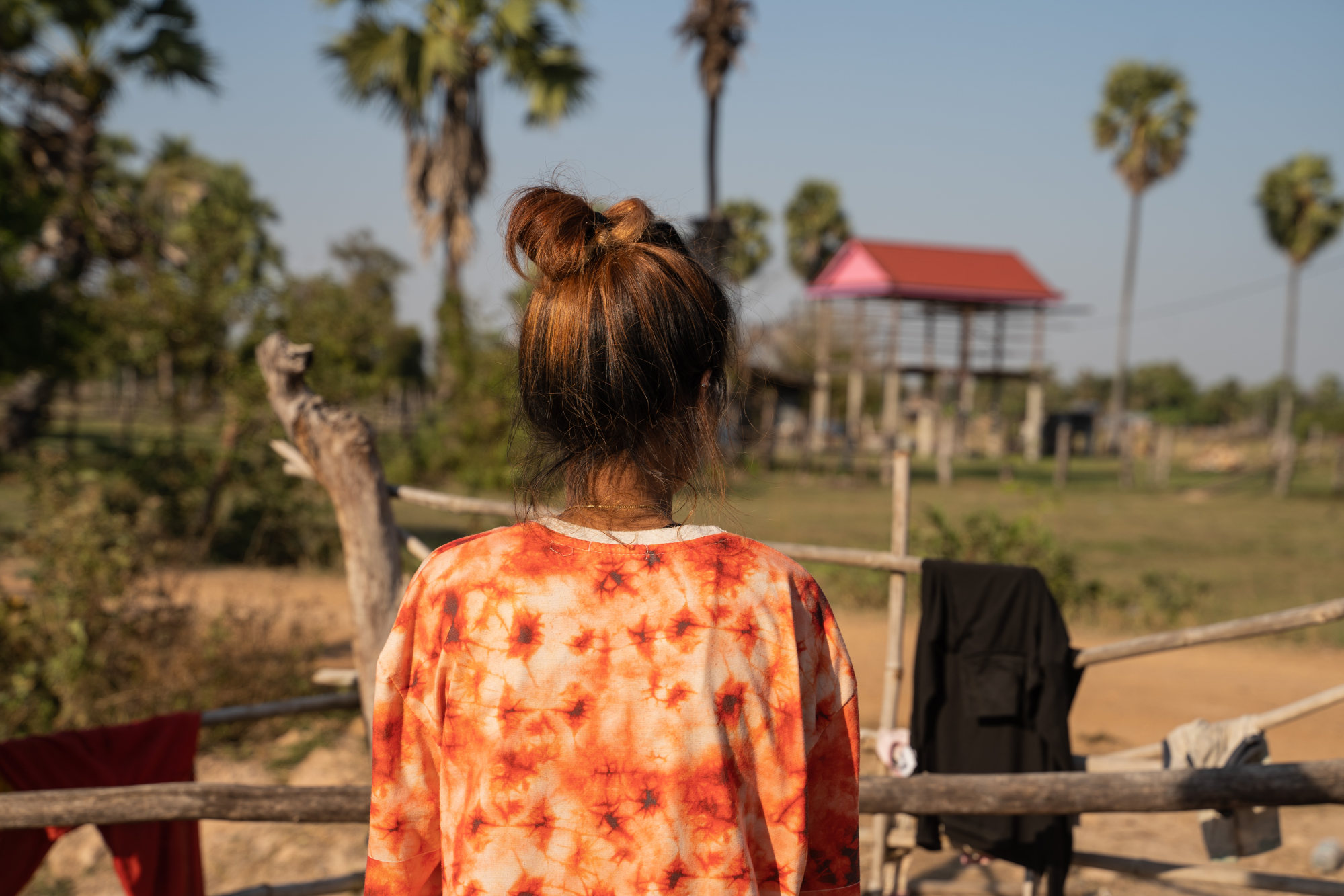
Some foreign brides who managed to escape the Chinese husbands they had been forced to marry describe being beaten and raped. Women who refused to marry or failed to produce a male heir were often sold to multiple Chinese men.
A long-time scourge in Cambodia, “the phenomenon has escalated” since 2016, surging further when the pandemic struck in early 2020, the Global Initiative report shows. Cambodian organisation Chab Dai, which works directly with cross-border trafficking victims, says its caseload doubled, with a new referral every three days in the first quarter of 2020.
At the time, massive job cuts across sectors predominantly hiring women, such as the garment industry, rendered more of them vulnerable to trafficking, Chan Saron, senior programme manager at Chab Dai, said in a recent online briefing.
“We can see that 237 factories have suspended operations in Cambodia with an estimated 118,000 workers affected. Even though you can see the international borders from Cambodia to Vietnam or from Cambodia to China are closed, international trafficking is still increasing if we compare it to the previous year.”
China moves to make reporting of trafficking mandatory under law revisions
The trend continued into 2021. More than 300 Cambodian women who had been trafficked to China – mostly for marriage – were reportedly repatriated between January and September last year, according to news reports.
That’s more than double the total repatriations in 2020, foreign affairs ministry spokesman Koy Kuong was quoted as saying, though this stands in stark contrast to the figure provided by Cambodia’s National Committee for Counter Trafficking, which says 77 women were repatriated in 2021.
Explaining the disparity, Chou Bun Eng, vice-chair of the committee, says the numbers “are not the same as [our figures] are based on the answers from the victims, during the investigation to find evidence to determine the crime. Some cases are not human trafficking.”
The number of returnees who had experienced sex trafficking abroad was likely much higher than reported because of lax victim identification procedures, the United States government says in its recent trafficking report.
This July, the US demoted Cambodia to Tier 3, the lowest rating in its annual human trafficking review, positing that the Cambodian government “does not fully meet the minimum standards for the elimination of trafficking and is not making significant efforts to do so, even considering the impact of the Covid-19 pandemic on its anti-trafficking capacity”.
They’ve forced me to take husbands here. They said if I don’t take them as husbands, they would sell me to a brothel. I want freedom, and to meet my family againSok, trafficked to China in 2018
Chou Bun Eng called the downgrade an “injustice”, telling local press, “[The report implies] we have done nothing – this makes us feel disappointed. It is not suitable considering our effort.”
Cambodian authorities have been raising awareness of bride trafficking, she said, adding that 21 suspects were charged last year in cases involving brokers or traffickers.
“Their mobile phones would be taken away and they would be prohibited from leaving the house unaccompanied,” said Thi Hoang, a researcher with Global Initiative, in a recent online briefing. “They are also prohibited from making any contact with friends or relatives back in Cambodia.”
Yet even with all these restrictions, Thi Hoang said, many of the women who were repatriated to Cambodia sought help on social media platforms such as Facebook or WeChat: “They often post statuses, photos or videos and messages about a situation.”
Bride trafficking, a problem on China’s belt and road
That is what saved 22-year-old Sok, whose name has been changed to protect her identity. In November 2020, two and a half years into her ordeal, she shared a post on Facebook: “They’ve forced me to take husbands here. They said if I don’t take them as husbands, they would sell me to a brothel,” she wrote. “I want freedom, and to meet my family again.”
A photo accompanying the post purportedly showed the room where she was being kept captive – a dingy basement with a bed.
A native of eastern Kratié province, Sok was trafficked in 2018 after a fellow garment factory worker in Phnom Penh talked her into accepting what she described as a lucrative job at a shoe factory in China. “The company is very nice. They can lend you money if the family is sick,” the worker said. “She told me the first salary would be US$500, then US$600 and US$1,000.”
Sok was 17 at the time and her older brother, the family’s sole breadwinner, had just died in a tree-felling accident. At the garment factory she earned at most US$140 a month, so migrating to China for work was going to be her way of helping sustain her loved ones.
She flew from Phnom Penh to Vietnam, continuing on towards the Chinese border by bus, only realising something was amiss when she was told to hop on a motorbike headed for the mountains. “When I saw we had to sneak around the mountains, they told me to keep quiet,” Sok says, “so I thought that this was illegal.”
I was screaming for help but no one would help me. They closed the door so that nobody could seeSok, 17 when she was trafficked to China
By then, it was too late to escape and the quiet teen was forced to marry almost immediately upon her arrival. Her father-in-law confiscated her passport.
Not one to wait around, she began hatching an escape plan and begged her husband for a smartphone, saying she wanted to watch videos online. Despite his initial reluctance, Sok succeeded. “My husband told me, ‘Don’t play Facebook with Khmer. Don’t interact with Khmer because they are not very good and they will try to get you out of here,’” she recalls.
In the end, it took Sok more than two years, including two unsuccessful escape attempts, to wrench herself free. During her first escape attempt Sok’s in-laws intercepted her just as she was on her way to the house of a Cambodian woman living in China, whom she had befriended on Facebook.
The second attempt saw the teen run to the local police station, pleading for help. Her in-laws arrived soon after. “They talked with the police and they were trying to take me back home with them so I was screaming for help but no one would help me,” Sok says. “They closed the door so that nobody could see.”
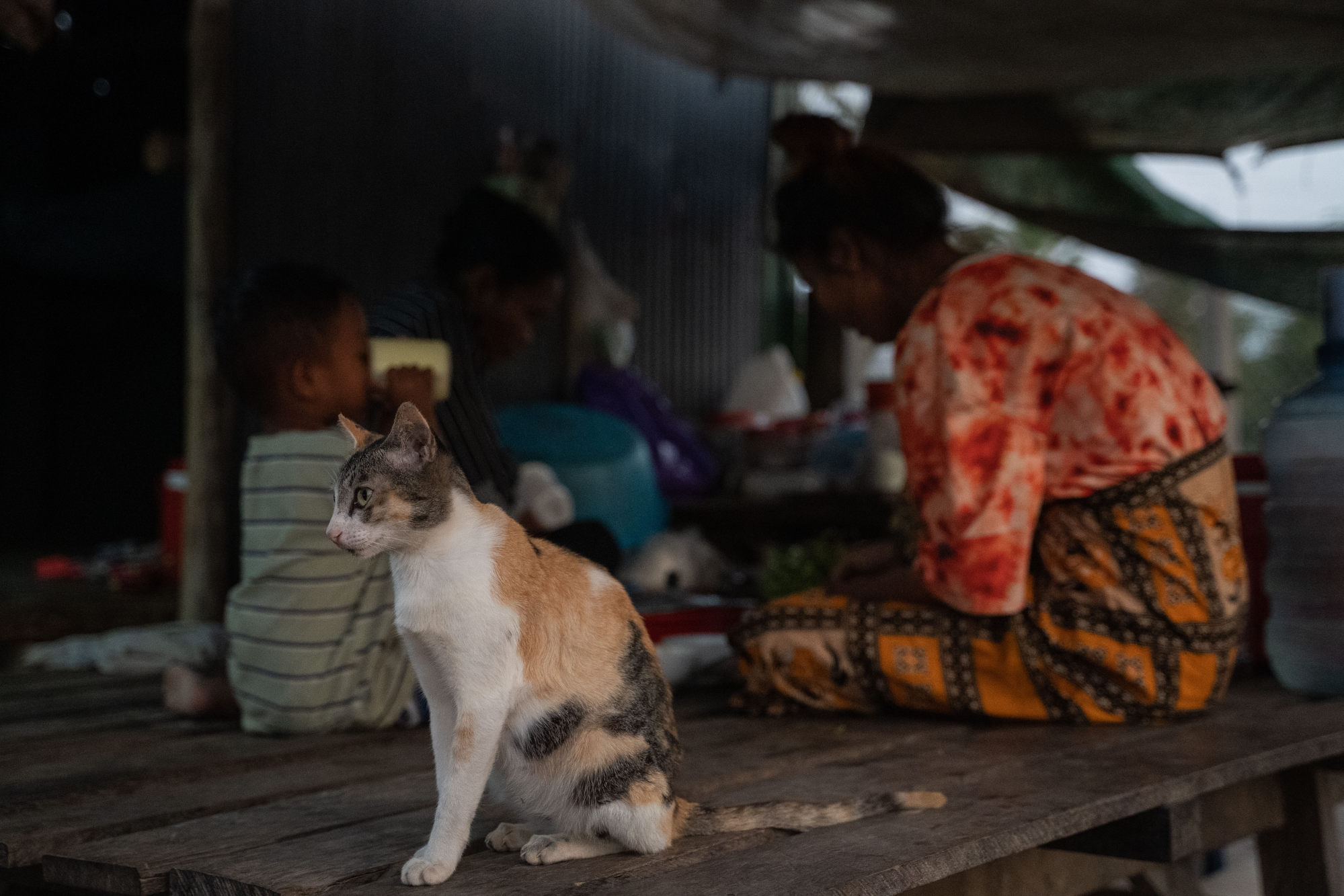
Back in her husband’s home, with no one to turn to and in a last-ditch attempt to free herself, Sok pleaded for help in the Facebook post describing her ordeal. A few days later, local police showed up at her door. By December 2020, she had landed in Phnom Penh with a number of other women.
“In other cases, the Chinese police also detain Cambodian trafficking victims for periods of between three months and one year because they overstayed their visa or they couldn’t provide legal identity or a legal resident’s permit upon inspection.”
The situation is particularly dire in the countryside, where law enforcement has been reluctant to recognise human trafficking as a crime, says Su, a former immigration police officer in eastern China whose name has been changed because of fears of government reprisals.
“We don’t treat them as victims,” she says of the trafficked women. “Most people have no sympathy for them, saying they are the ones who want to sell themselves to have a better life – ‘They are coming here to the countryside and they figure he’s not a rich man [and then] they claim they are being abused and raped.’”
China shocked by mentally ill woman chained up by husband in freezing shed
Operating in five provinces, the network strives to fill a gaping hole in organisations working to combat sex trafficking. “During the Covid-19 pandemic,” says Su, “those girls who ran away had to be in quarantine near the border. They would be asked, ‘Do you have authorisation papers from your husband?’ And they didn’t have any Chinese people to help.”
It is typically up to the trafficked women to make it to the nearest point of safety. “If there is a case, I can contact that person and they can give us as much information as possible but then [my colleague] is not doing the rescue because it will get her in trouble,” explains Su.
Threats of imprisonment have reportedly been used by traffickers to keep Cambodian women from fleeing their husbands. Post Magazine heard an audio recording of a message sent by an alleged trafficker to a Cambodian woman, currently trapped in Jiangxi.
“If you don’t follow your husband, if you dare leave the husband they will take you to prison and you will eat red rice,” a female voice yells in Khmer, referring to prison food in Cambodia, where prisoners are typically fed red rice.
I’m scared they might catch me. They will lock me in the house foreverKunthea, to her brother when she fled her Chinese husband
When Kunthea fled to the nearest police station in August 2021, one week after arriving at her Chinese husband’s high-rise condo in Jiangxi, she, too, was threatened with incarceration. No one explained what crime she had supposedly committed.
Her husband was immediately notified by the police and she was urged to return home with him because, by her own admission, he was not a violent man. “The translator told me that if I didn’t go with my husband I would have to go to prison for a year,” Kunthea recalls. “If I’d decided to go with my husband I would have been in China forever. I will never go back.”
Having refused to return with her husband, Kunthea was held alone in a windowless room, most likely in a police detention centre. She didn’t see sunlight for weeks at a time. “In prison no one talked to me. They just went around, putting the food in and going out,” she says. Only one thought kept Kunthea going. “I persisted for my kids. I thought about my kids a lot.”
What she didn’t know was that back in Cambodia, her younger brother, Bros, was pleading with powerful politicians to get Kunthea back.
On the day of her escape, August 10, 2021, she had shared her husband’s home address with her brother, a garment factory worker in Phnom Penh, saying she was heading to the police station. “I’m scared they might catch me. They will lock me in the house forever,” she had said in her message. Then the two lost contact.
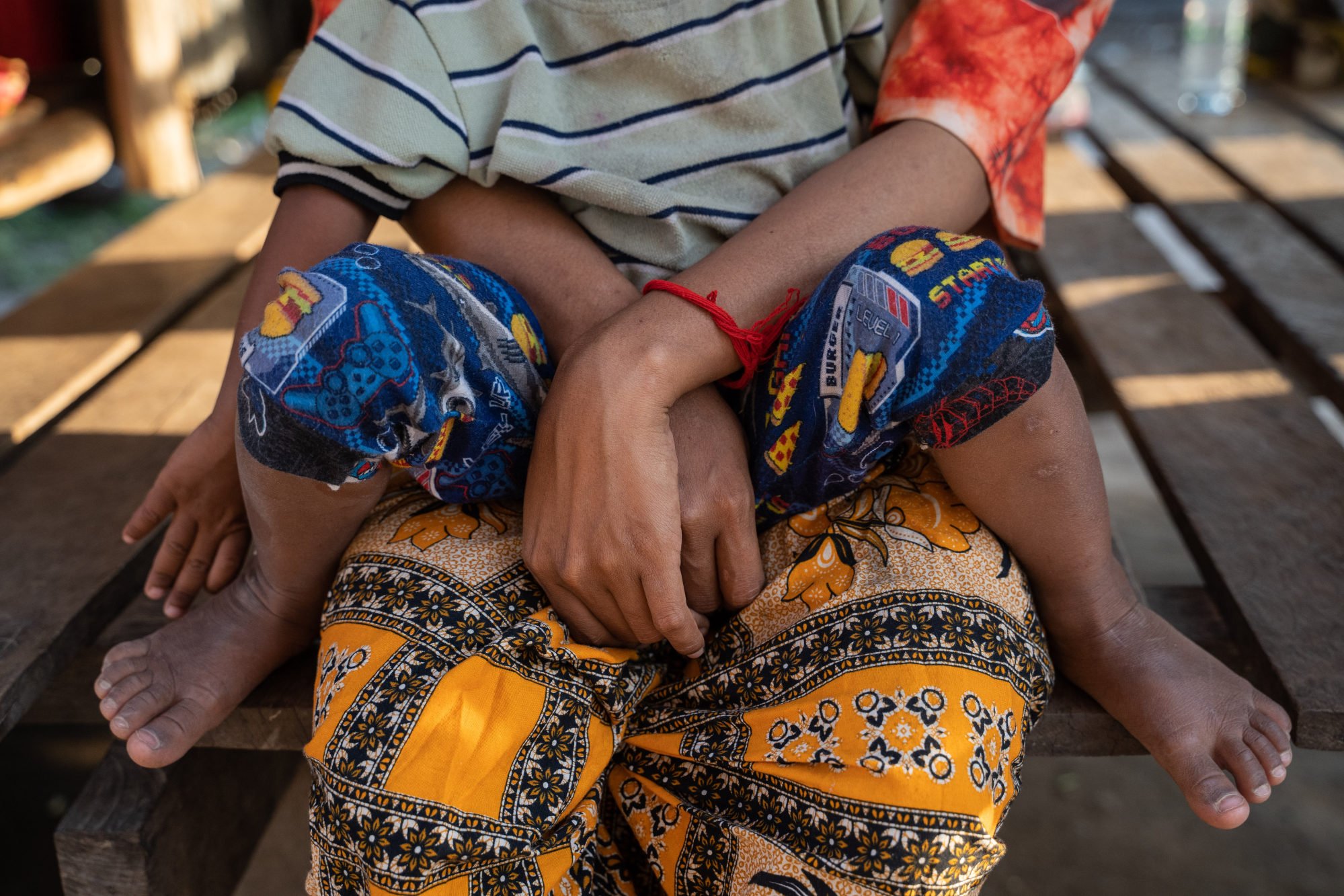
“My sister was taken to work in China but is now being resold,” Bros wrote on the Facebook page of Cambodian Deputy Prime Minister Sar Kheng the same day. “My sister has been [detained] and I cannot contact her. Please help.” A few days later, Bros received a letter from Cambodian authorities: Kunthea was coming home.
When she was finally reunited with her children in November last year, she was overcome with joy. “My first kid was very happy and came to me and hugged me, saying ‘mum’, but the second child, he didn’t know me,” Kunthea says. When she had left for China, the boy, now curled up in her lap and tugging on her honey-coloured hair, was seven months old.
Though the family will soon have to part again as she travels to another province for work, Kunthea considers herself lucky. After returning from China, she married a long-time friend, a chirpy young man who, she says, “knows everything about me and still accepts me”.
The couple have been working in construction for a Chinese dam company while her husband’s parents look after Kunthea’s children. Between the two of them, they earn US$375 per month, and can send money back to her mother-in-law. The irony of working for a Chinese company isn’t lost on Kunthea. “The company is from China but as I now work with other Cambodians, I am not afraid,” she says.
“My friend wants to go back home but she doesn’t know how,” she says. “She doesn’t want to follow my path because she is afraid she might have to stay in prison for no reason.”
Additional reporting by Klaing Kimhouy and Som Sreypich.

